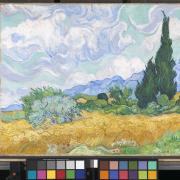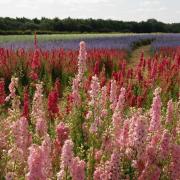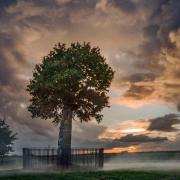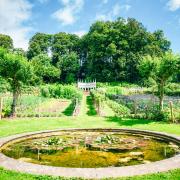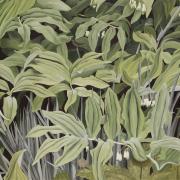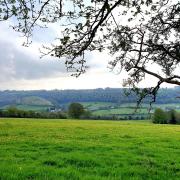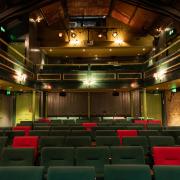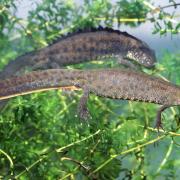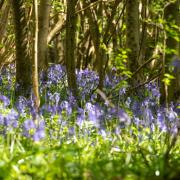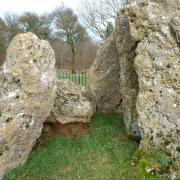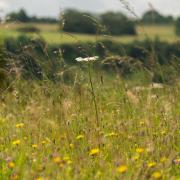Cheltenham Science Festival has a thrilling programme this year, which features prominent names from the world of science participating in vibrant discussions in the cultural hub of Cheltenham.
As ever, the Festival will be spotlighting, introducing and developing emerging talent and diverse voices from the scientific world, exploring the crucial relevance of science. This year’s programme shines a light on the role science plays in understanding our everyday lives, from eating to ageing, and deception to elections.
Taking place from Tuesday 4 – Sunday 9 June, the Festival will cover a range of fascinating topics across over 100 events. Festival-goers will be given the chance to explore some of the biggest issues in our world in more depth, with topics covered including the power of science to predict the upcoming elections, how desire works, and the question of whether humanity is truly alone in the universe. Speakers come from the worlds of art and design, social sciences, psychology and neuroscience, chemistry, engineering, entertainment, the environment, history, current affairs, food and space.
The annual Festival will once again be embracing the inspiring theme of ‘Be the Change’, highlighting how considering one’s role in shaping the future can create lasting change.
Cheltenham Science Festival will be working with three esteemed Guest Curators: Sophia Smith Galer, a science-focused journalist who Forbes magazine named as one of their Thirty Under Thirty, and Thomas Hertog, a Belgian cosmologist, author and previous key collaborator with Stephen Hawking. They will be crafting a programme that addresses the impact of science on our daily lives, as well as presenting insights that illuminate the intersection of science, innovation, and societal transformation. Returning this year is AIDA, the world’s first AI Science Festival curator, who will be contributing unique ideas to the Festival’s programme once more.
Additionally, the Festival will again work with a group of Young Changemakers: activist and Lived Experience consultant Charli Clement, food campaigner Tasha Mhakayakora, Dark Sky Officer for Snowdonia National Park Dani Roberson and Data engineer and STEM Ambassador Tosin Sonubi, whose fresh and distinctive perspectives will ensure that vital conversations take place. The Festival will also see the return of former changemakers: climate justice activist Daze Aghaji, international affairs young adviser Samuel Ajakaiye, Soil Snack founder Claudia MacGregor and ecologist and writer Jasmine Qureshi.
Dr Marieke Navin, Head of Programming at Cheltenham Science Festival comments: “Cheltenham Science Festival is an unmissable event in the science community’s calendar and this year’s programme explores everything from the everyday to the out of this world, inspiring tangible action. The Festival will be welcoming voices from across the sciences and humanities, alongside fascinating insights into how we can understand our changing world, highlighting both the wonder of the everyday and inspiring the next generation of thinkers and dreamers.”
PROGAMME HIGHLIGHTS:

Space and the Universe
Astronaut Tim Peake, space ecosystems manager Anuradha Damale-Day and the UK Space Agency’s Anu Ojha delve into the future of space and its impact on our people and planet. Covering everything from military hardware and international relations to space security and travel, they discuss how developments in cyber security and technology have brought the relationship between earth and space-based systems even closer. BBC The Sky at Night presenter Maggie Aderin-Pocock guides visitors through the night sky, covering the 88 constellations and science behind these celestial bodies.
Brian Cox and Jeff Forshaw explore the concept of black holes and take a scientific journey to the research frontier spanning a century of physics, from Einstein to Hawking and beyond. Dara Ó Briain, astronaut Meganne Christian and anthrologist Kate Robson Brown share new ambitions to visit the moon, while Ó Briain also engages in conversation with UCL cosmology professor Andrew Pontzenand space scientist Maggie Aderin-Pocock as they tour our solar system and beyond to explore one of the greatest questions ever asked: are we alone?
Saving our Planet
'Is Humanity in Danger’ interrogates the climate catastrophe and the threat of AI and global instability that currently dominate our headlines and everyday lives, as narrotologist Genevieve Liveley and writer and historian Subhadra Das consider how we protect the future for people and planet. Oceanographer Helen Czerski, magazine journalist Oliver Franklin-Wallis and senior research leader at Kew, Irina Druzhinina, unpack how science and technology is evolving to make better use of our waste in ‘A Load of Rubbish’, while Historian Peter Frankopan will speak to non-executive Director at Chatham House Samuel Ajakaiye, giving a monumental account of how the natural world has shaped human history, and shedding new light on today's climate crisis and the epochal shifts of the past.
Science Exploring the Everyday
The connection between food and the brain will be explored through ‘Gut Feelings,’ where psychologist Kimberley Wilson and nutritionist Emily Leeming explore the role of food and nutrients in brain development and mental health. Sharing delicious recipes and tips from the kitchen, chef Hugh Fearnley-Whittingstall reveals the incredible health benefits that can come from adding 30 more vegetables to one’s diet each week. Aerospace engineer and judge of Netflix’s Baking Impossible, Andrew Smyth also explores the connections between everyday bakes and the extraordinary engineering that helps keep astronauts alive. Great British Bake Off finalist Josh Smalley will cook up a storm with engineer Tosin Sonubi, material scientist Mark Miodownik and chemist Andrea Sella. Through live cooking demonstrations, they will show Festivalgoers how to turn their kitchen into a laboratory.
Desire is the hot topic for guest curator Sophia Smith Galer, clinical psychologist and psychosexologist Karen Gurney and Anna Machin, as they delve into the science of the sexual landscape and the power of sexual connection. Buddhist monk Gelong Thubten and neuroscientist Ash Ranpura will also explore what happens to the brain when we practice meditation and mindfulness to increase our resilience and handle life’s challenges every day of our lives.

The Science of Deception
What role does science play in deception? The Traitors star Andrew Jenkins, game theorist and mathematician Marcus Du Sautoy and kidnap negotiator Scott Walker delve into how science plays a role in deceit with psychologist Catherine Loveday. In a race between two teams, fantastical fibs and titillating truths await as two teams convince each other to believe their crazy science stories. Team captains – geneticist Adam Rutherford and science presenter Neil Monteiro – lead the charge, with comedians Robin Ince and Shirley Halse, sound-rageist Jane Gregory and data-wrangler Rachel Williams. BBC Presenter Maddie Moate chairs a conversation uncovering how spies, the true masters of deceit, keep our country safe online and in the real world and forensic ecologist Patricia Wiltshire shares fascinating stories where nature and crime intertwine, thus interrogating crucial world questions.
cheltenhamfestivals.com/science




